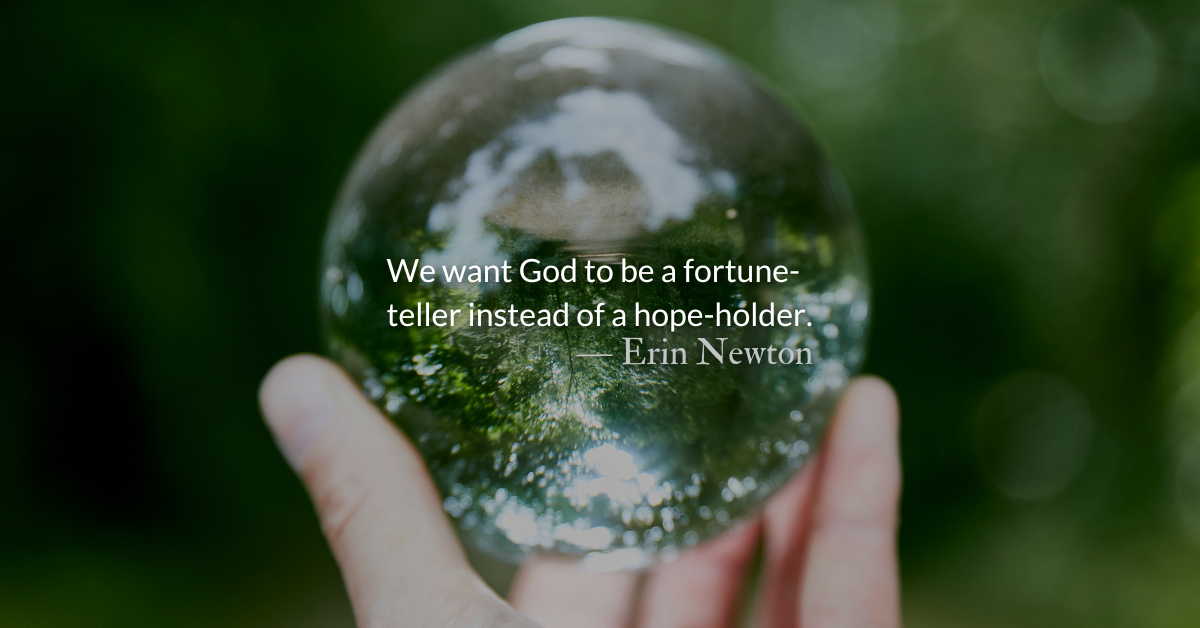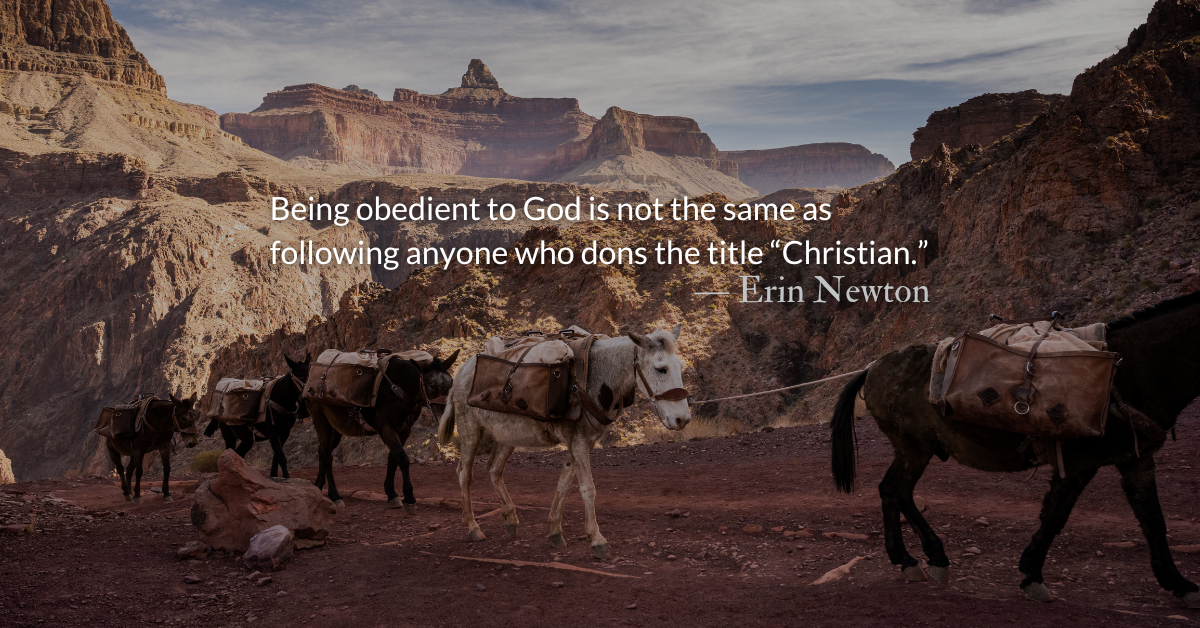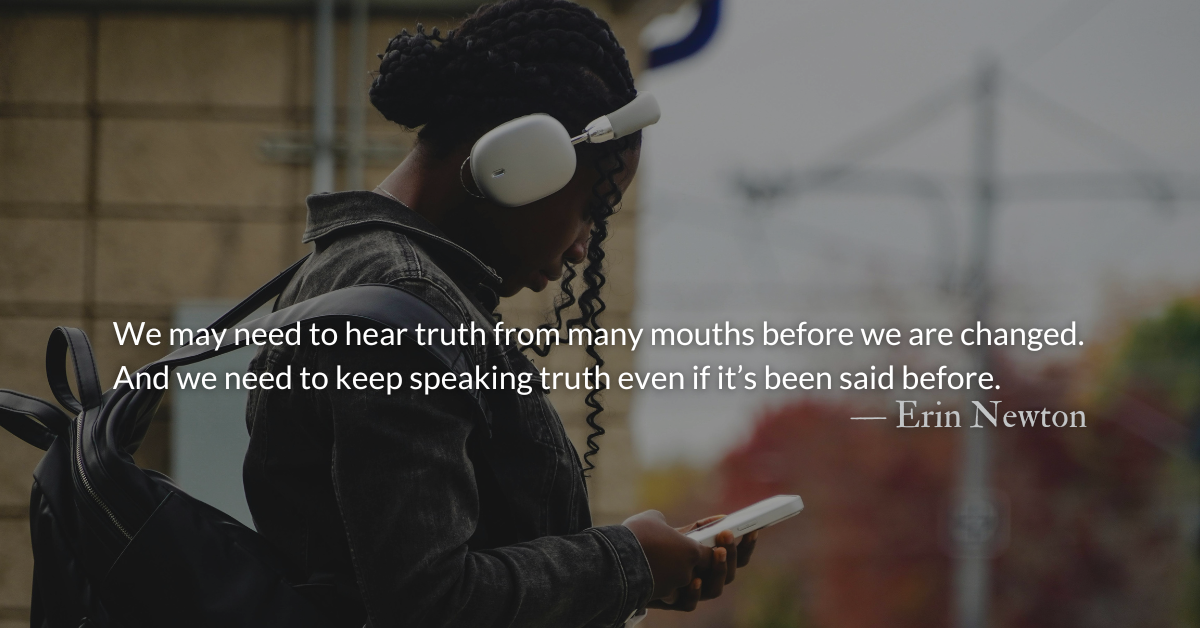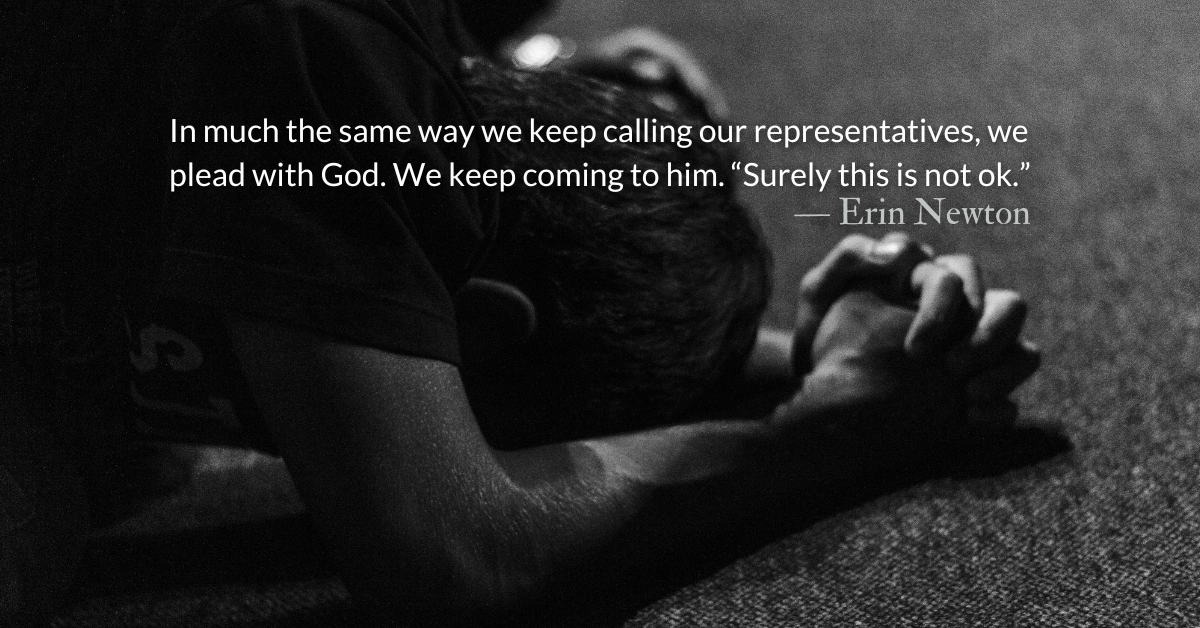Links for today’s readings:
Feb 18 Read: Proverbs 9 Listen: (1:50) Read: Psalm 39 Listen: (1:49)
Scripture Focus: Psalm 39:4-7
4 “Show me, Lord, my life’s end
and the number of my days;
let me know how fleeting my life is.
5 You have made my days a mere handbreadth;
the span of my years is as nothing before you.
Everyone is but a breath,
even those who seem secure.
6 “Surely everyone goes around like a mere phantom;
in vain they rush about, heaping up wealth
without knowing whose it will finally be.
7 “But now, Lord, what do I look for?
My hope is in you.”
Reflection: Existential Dread
By Erin Newton
Existential dread is a deep-seated feeling and anxiety about the meaning of life. We sometimes equate the experience with the proverbial “mid-life crisis.” As I entered the working world after college, I learned you can have a similar feeling at that time, called the “quarter-life crisis.” What may cause people to dye their hair, buy a shiny new car, quit their job, and pursue a new career is this deeply rooted concern about life. What are we doing? What is this all about?
As Christians, we are taught to exchange our initial ambitions for a life in Christ. Our plans become whatever God’s plans are for us. And that is all well and good. But I think we are sometimes shocked (and maybe embarrassed) when we reach a point that we’re asking the same questions as Psalm 39: What am I doing with my life? When am I going to die? How much longer do I have? Have I wasted it all? Isn’t it all rather pointless?
This psalm seems to ebb and flow between statements about being silent, then a burst of questions and pleading with God. This first half of the psalm focuses on the relatively short nature of our human lives. As if an echo from Ecclesiastes, the psalmist says, “Everyone is but a breath.” Vanity. Vanity. Everything is meaningless.
The fact that these words are preserved for us should give us some comfort. We all feel this way at some point in time. It is not being ungrateful for the life God has led us through. It’s simply a question that we often wrestle with.
So what do we do? “But now, Lord, what do I look for?,” the psalmist asks.
Do we look for success? Do we look for companionship? Do we look for achievements? Do we look for a legacy? Do we look for a pain-free existence? These things are not necessarily wrong.
“My hope is in you.”
The psalm asks, “Show me,” and “What do I look for?” We want God to be a fortune-teller instead of a hope-holder.
Existential dread asks to see the future, assure us how this all turns out. We don’t get an answer to that question. There lies our hope.
We ask God the same questions century after century. The answer remains the same: We look to God for our hope and then we keep living.
Divine Hours Prayer: The Request for Presence
O God of hosts, show the light of your countenance, and we shall be saved. — Psalm 80.7
– From The Divine Hours: Prayers for Springtime by Phyllis Tickle.
Listen to: RSVP to Wisdom or Folly
Two banquets are prepared.
Two invitations go out.
Two hostesses beckon.
Which banquet will you enter? Who gets your RSVP?
Consider Supporting Our Work
Please consider becoming a donor. Support ad-free content that brings biblical devotionals to inboxes across the world.






